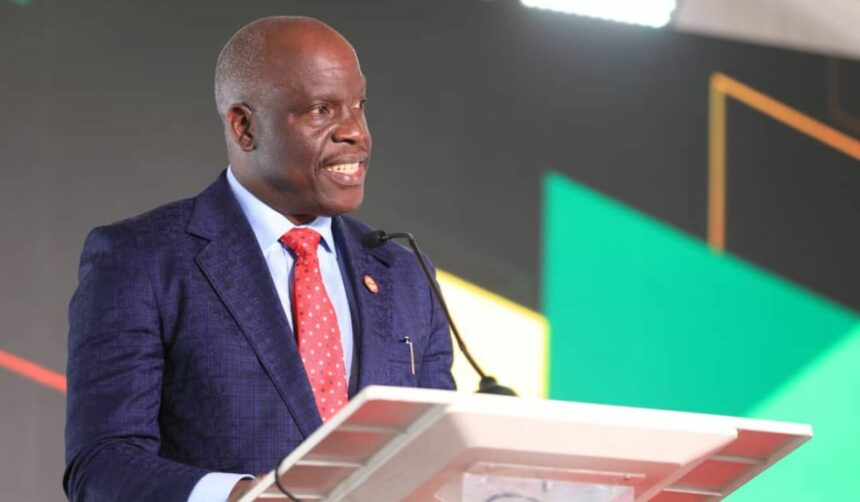The Nigerian Upstream Petroleum Regulatory Commission (NUPRC) has officially initiated the 2024 oil bid round process, offering 12 oil blocks alongside seven deep offshore blocks carried over from last year’s bid round.
Engr. Gbenga Komolafe, CEO of the Commission, announced this during the inaugural NEITI House Dialogue in Abuja. He stated that the bidding process is set to conclude by January next year.
According to him, the new green field oil blocks up for grabs include:
Six acreages located on the continental shelf.
Four deep offshore blocks.
Two onshore blocks in the Niger Delta region.
Komolafe emphasized that the Commission has established regulations to create an investment-friendly environment, ensuring regulatory certainty, removing entry barriers, and fostering global competitiveness.
His words: “The licensing round that we are putting in place is designed to enhance the quality dataset, and it is going to be conducted in a fair and competitive bidding process in a non-discriminating manner.
“The criteria for acquiring these blocks include technical competence, financial capacity, and viability, among others.”
Additionally, Komolafe revealed that the Commission recorded a revenue of N4.344 trillion in 2023, marking a 15% increase from the N3.78 trillion generated in 2022.
At the dialogue, Dr Orji Ogbonnaya Orji, Executive Secretary of NEITI, highlighted the significance of the NEITI House Quarterly Dialogue in addressing pertinent issues within Nigeria’s extractive industries and related sectors.
Meanwhile, the NUPRC has outlined guidelines for the proposed divestment of Shell Petroleum Development Company of Nigerian Limited (SPDC) assets through a sale by its shareholders to Renaissance Africa Energy Company Limited.
The SPDC JV assets, currently operated by SPDC on behalf of its Joint Venture partners, have significantly contributed to Nigeria’s crude and condensate output, with estimated reserves of 4.96 billion barrels of oil and significant gas reserves.
The divestment guidelines cover technical capacity, financial viability, legality, decommissioning plans, host community trust funds, and environmental remediation funds, among other factors.
In a related development, Nigeria is set to offer up to 20% of its crude oil production for trading on its commodities exchange.
Akinsola Akeredolu-Ale, the chief executive of the Lagos Commodities and Futures Exchange, disclosed this in an interview with Bloomberg.
”The move aims to expand access to financing for the oil and gas industry, which is crucial to Nigeria’s foreign currency income,” Akeredolu-Ale said.










